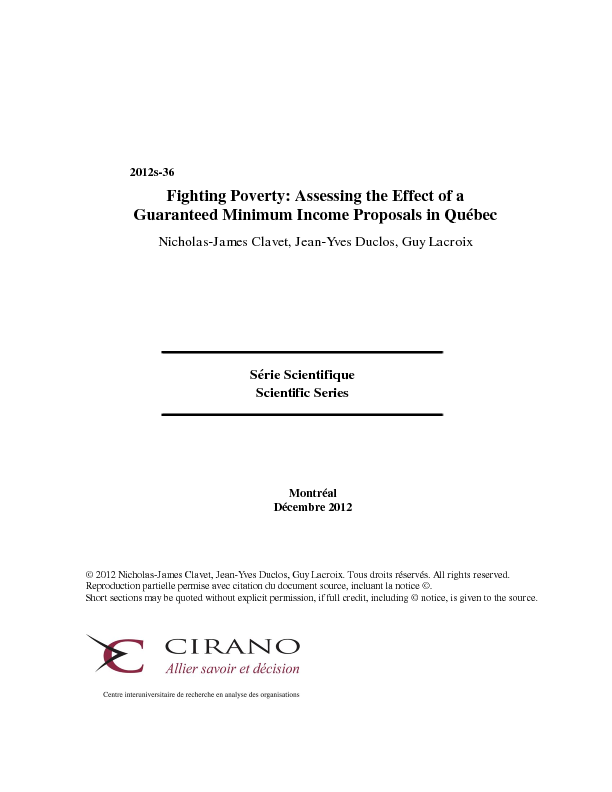Fighting Poverty: Assessing the Effect of a Guaranteed Minimum Income Proposal in Québec
This paper analyzes the impact of a recent recommendation made by Quebec's Comité consultatif de lutte contre la pauvreté et l'exclusion sociale to guarantee every individual an income equal to 80% of Statistics Canada's Market Basket Measure (MBM). Workers with earnings at least equivalent to 16 weekly hours at the minimum wage would be entitled to 100% of the MBM. We also investigate the impact of three alternative proposals: 1) a change in the above the hours cut-off from 16 to 30 hours; 2) a guaranteed income equal to 100% of the MBM, irrespective of earnings; 3) a 3$/hour conditional wage subsidy. To do this, we first estimate a structural labor supply model using the existing tax code and predict the labor supply of a representative sample of individuals based upon the parameter estimates of the model. Simulations show that the original recommendation would have strong negative impacts on participation rates of low-earners and that its cost would exceed $ 2 billion. Increasing the hours cut-off is predicted to have little impact beyond those of the original recommendation. Providing a guaranteed income equivalent to 100% of the MBM, on the other hand, would have a large impact. We find that contrary to what is usually assumed, guaranteed income schemes may increase the incidence of low-income rather than decrease it.
[ - ]




